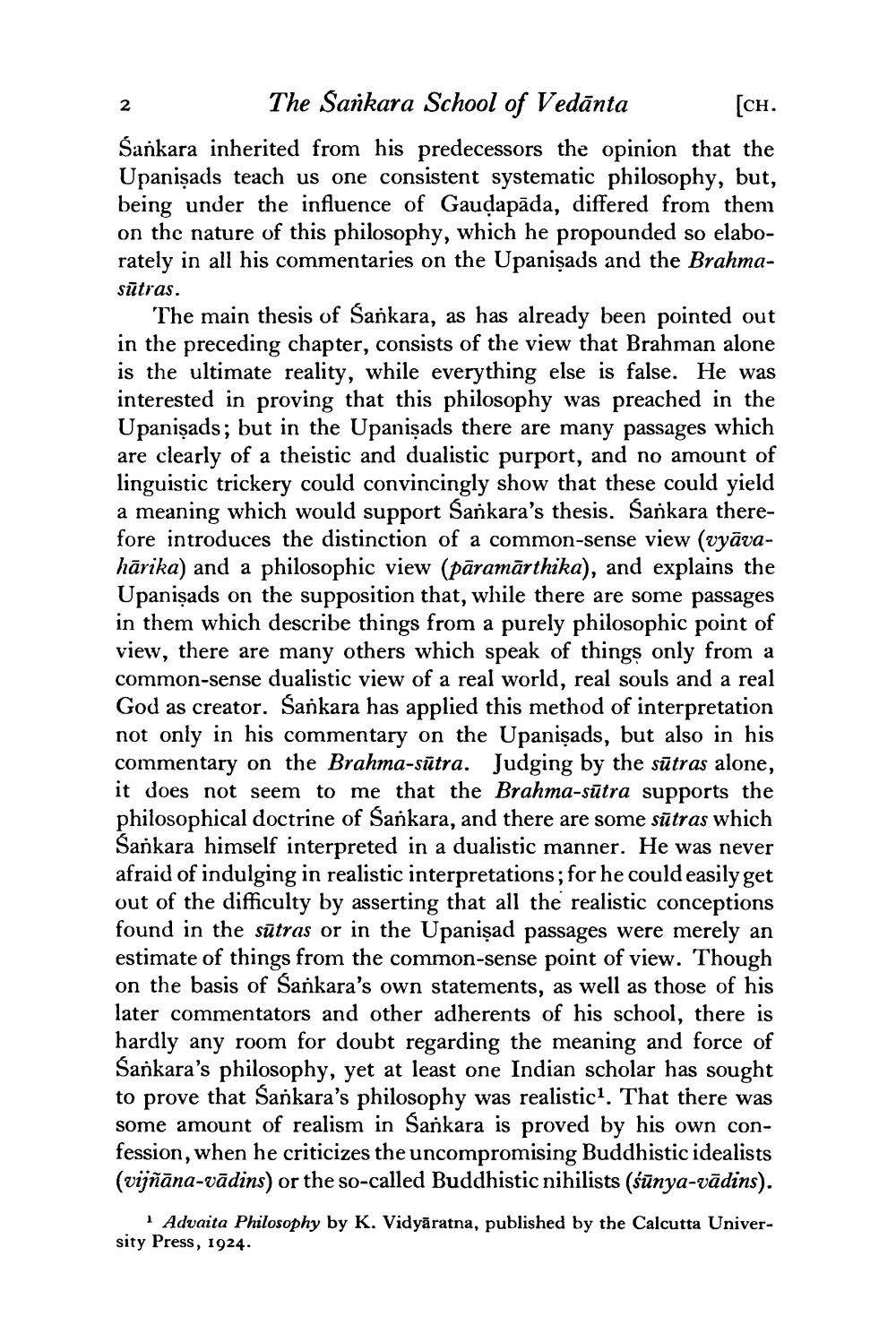________________
The Sankara School of Vedānta [ch. Sankara inherited from his predecessors the opinion that the Upanişads teach us one consistent systematic philosophy, but, being under the influence of Gaudapāda, differed from them on the nature of this philosophy, which he propounded so elaborately in all his commentaries on the Upanişads and the Brahmasūtras.
'The main thesis of Sankara, as has already been pointed out in the preceding chapter, consists of the view that Brahman alone is the ultimate reality, while everything else is false. He was interested in proving that this philosophy was preached in the Upanişads; but in the Upanişads there are many passages which are clearly of a theistic and dualistic purport, and no amount of linguistic trickery could convincingly show that these could yield a meaning which would support Sankara's thesis. Sankara therefore introduces the distinction of a common-sense view (vyāvahārika) and a philosophic view (pāramārthika), and explains the Upanişads on the supposition that, while there are some passages in them which describe things from a purely philosophic point of view, there are many others which speak of things only from a common-sense dualistic view of a real world, real souls and a real God as creator. Sankara has applied this method of interpretation not only in his commentary on the Upanişads, but also in his commentary on the Brahma-sūtra. Judging by the sūtras alone, it does not seem to me that the Brahma-sūtra supports the philosophical doctrine of Sankara, and there are some sūtras which Sankara himself interpreted in a dualistic manner. He was never afraid of indulging in realistic interpretations; for he could easily get out of the difficulty by asserting that all the realistic conceptions found in the sūtras or in the Upanişad passages were merely an estimate of things from the common sense point of view. Though on the basis of Sankara's own statements, as well as those of his later commentators and other adherents of his school, there is hardly any room for doubt regarding the meaning and force of Sankara's philosophy, yet at least one Indian scholar has sought to prove that Sankara's philosophy was realistic. That there was some amount of realism in Sankara is proved by his own confession, when he criticizes the uncompromising Buddhistic idealists (vijñāna-vādins) or the so-called Buddhistic nihilists (sūnya-vādins).
* Advaita Philosophy by K. Vidyāratna, published by the Calcutta University Press, 1924.




